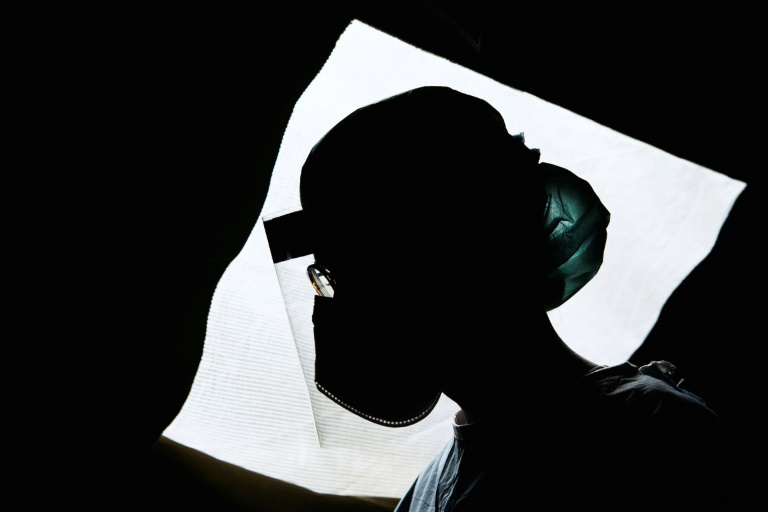
A nurse conducts tests for the new coronavirus in a tent in the grounds of a private hospital in Stockholm. (Photo: AFP)
Bitterly divided EU leaders will try Thursday to hammer out a huge coronavirus rescue package, as the WHO warned the pandemic is far from over.
While there are signs the COVID-19 outbreak is slowing and some countries have started to ease restrictions affecting billions of people, the world is grappling with how to repair economic damage on a scale not seen for nearly a century.
Other nations are still in the early stages of the fight against a disease that has killed more than 180,000 people and infected 2.6 million worldwide, even as it appears to be peaking in Europe and the United States.
Oil prices and stocks rallied on Thursday after a virus-induced pounding earlier this week but uncertainty remained, with governments fearing a second wave of coronavirus infections if lockdowns are lifted too fast.
In Europe, still the worst-hit continent with 110,000 deaths, leaders are set to haggle via video conference on a giant economic recovery package, but a deep north-south divide threatens to scupper any progress.
'Spirit of solidarity'
The fight has reopened the wounds of the 2009 economic crisis with debt-laden southern states like Spain and Italy, both badly hit by the disease, demanding help to get back on their feet.
"With the pandemic, nobody calls," says Pedro Oran, a 53-year-old Spaniard who usually works by helping a plumber, as he lined up to collect food for the first time at a Madrid soup kitchen.
But richer northern countries like Germany and the Netherlands, while saying they are ready to help for now, insist they will not take the long-term step of pooling debt with Mediterranean governments they accuse of profligacy.
"In the spirit of solidarity, we should be prepared to make completely different, that is to say significantly higher contributions to the European budget over a set period," German Chancellor Angela Merkel told lawmakers in Berlin.
In a sign of how far apart the bloc's 27 countries are, leaders will not even issue their usual joint statement after the videoconference, a diplomat told AFP.
The divisions could not come at a worse time, with the eurozone economy suffering an unprecedented collapse in April due to the pandemic, according to a leading business survey by analysis firm IHS Markit.
'Long way to go'
The pressure on governments everywhere to ease the economic pain is growing by the day, with tens of millions unemployed and several countries at risk of famine.
Some European countries have slightly eased coronavirus measures but bans on large gatherings have been extended.
Governments elsewhere are taking similar steps, with Vietnam's commnuist authorities easing social distancing measures as cases plateaued, with experts saying the apparent success was down to aggressive containment and contact tracing.
"We go to each and every alley, knocking on each and every door," said Nguyen Trinh Thang, a 72-year-old Hanoi resident who is part of a team tasked with zeroing in on any suspected cases.
Despite a long and porous border with China, the Southeast Asian nation has recorded just 268 virus cases and zero deaths, according to official tallies.
Yet World Health Organization chief Tedros Adhanom Ghebreyesus on Wednesday cautioned that the struggle is far from over.
"Make no mistake: we have a long way to go. This virus will be with us for a long time," he said. "Most countries are still in the early stages of their epidemics. And some that were affected early in the pandemic are now starting to see a resurgence in cases."
The WHO and other health experts have warned that strict containment measures should remain until there is a viable treatment or vaccine for the coronavirus.


